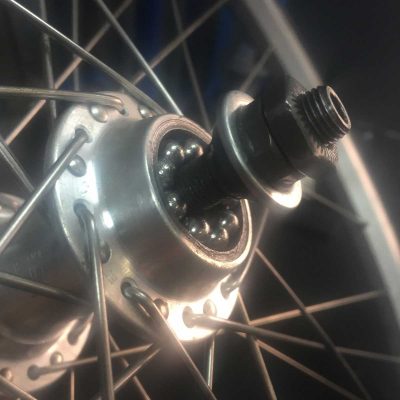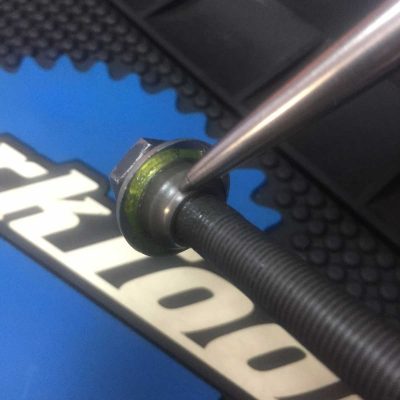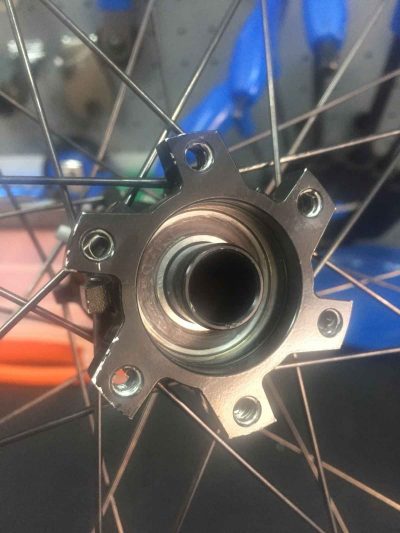Bicycle maintenance: How to give your hubs a service
Bicycle maintenance: How to give your hubs a service
Posted on 6 Jun 2017
Keep your wheels running as smooth as the day you got them by giving your hubs a regular service.
Well maintained hubs are a must to get the most out of your bike as they allow the wheels to rotate freely around their axle. The vital component? Bearings.
Hubs tend to come in one of two types of bearing assemblies; either adjustable cup-and-cone, or sealed cartridge.
Graeme, Cytech trainer and assessor for Torq Zone Academy in South Africa, is here to help discuss the differences and how best to keep them in tip-top condition.
Cup-and-cone hubs
The cup-and-cone hub has a bearing cup pressed into the hub, loose ball bearings, and an adjustable cone. When adjusting such a hub it is best to achieve "free rotation with no play", or pre-load, on the bearing through either loosening or tightening the adjustable cone. Always lock down on this pre-load by tightening the locknut firmly up against the adjustable cone.

The advantages of a cup and cone assembly are that, due to their angular contact nature, side loads are spread evenly across all the bearings at all times, and they also last longer if correctly maintained. It is best practice to replace the grease and ball bearings with each service, which is normally at a minimal cost to the customer.
A drawback of this assembly is that once the bearing cup in the hub has become damaged the entire hub needs to be replaced.

When disassembled always inspect for damaged bearing cups and cones by running a ballpoint pen on the bearing surfaces, and run the axle on a flat surface (checking for a wobble) to determine if it has been bent at all.
Sealed cartridge bearing hubs
Sealed cartridge bearing hubs are not serviceable or adjustable in the sense that once the hub fails or has play, only the sealed cartridge bearings housed in the hub are replaced.
The replacement of the sealed cartridge bearings does, however, require specialist tools to remove and replace them, such as a bearing puller and press set.

When replacing bearings ensure it is like-with-like using the ISO code to determine the appropriate bore size, outer diameter, and thickness. This code is normally found on the seal of the old sealed cartridge bearing.
Always press the sealed cartridge bearing squarely into the hub and ensure that there is equal pressure on both the inner and outer race. Also make sure to use an anti-seize compound on the interface between the bearing housing in the hub and the outer race of the sealed cartridge bearing to prevent galvanic corrosion between these two parts.
The advantages of the sealed cartridge bearing assemblies are that they are relatively inexpensive and are replaceable, once worn.
A disadvantage of these bearings is that they do not handle side loads well as they are of a radial nature and therefore only some of the balls, mainly the ball bearings at the top, are carrying all of the weight as the wheel spins. In a rear hub this is overcome by placing a set of bearings in the rear hub and a set of bearings in the freehub body which displaces the load more evenly.
As you can see hubs are relatively simple to maintain, meaning your wheel will keep on covering those miles! However if you don't have the right tools then it's always better to take your bike to your nearest Cytech accredited shop to get a professional check-up.
Article by Torq Zone Academy's Graeme (Cytech master technician)

